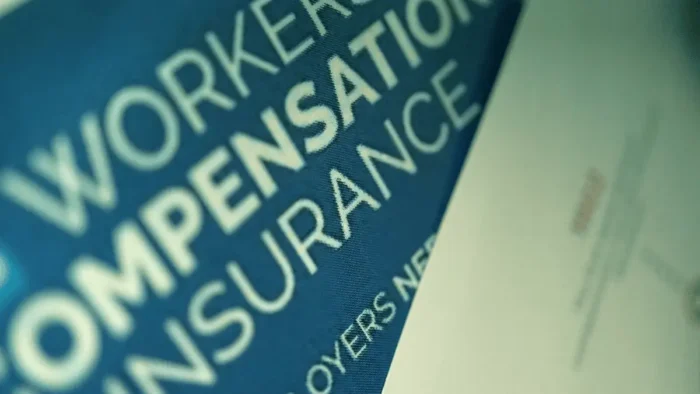Nowadays, many individuals and families face the burden of debt. Balancing multiple loans, credit card debts, and other financial obligations can overwhelm your financial freedom. Fortunately, there is a solution that can help streamline your financial situation and pave the way to economic independence: debt consolidation.
This article explores the benefits of debt consolidation and its potential pitfalls, providing a comprehensive guide to help you make informed decisions regarding your financial future.
The Concept of Debt Consolidation
Debt consolidation is a financial strategy combining multiple high-interest debts into a single, more manageable loan. This can be achieved through various methods, including personal loans, home equity loans, or balance transfer credit cards. The primary goal of debt consolidation is to simplify your financial life by reducing the number of creditors and monthly payments. By consolidating your debts, you can secure a lower interest rate, lower monthly payments, and a fixed repayment term, making it easier to budget and manage your finances.
A personal loan is one of the most common ways to consolidate debt. Personal loans can be obtained from traditional banks, online lenders, or credit unions. These loans are typically unsecured, meaning you don’t need to provide collateral to secure the loan. Once approved, you receive a lump sum, which you can use to pay off your existing debts. The benefit of personal loans is that they often come with a fixed interest rate and a set repayment period, which allows you to predict your monthly payments accurately.
Real or Scam?
While debt consolidation can be a legitimate and effective financial tool, there are also scams and predatory practices that individuals should be aware of. Some unscrupulous companies or individuals may promise quick fixes and guaranteed results, preying on people in desperate financial situations. To avoid falling victim to a debt consolidation scam, it’s crucial to exercise caution and perform due diligence.
One common scam involves companies that promise to negotiate with creditors to reduce the total amount you owe. They may charge hefty upfront fees for their services and make unrealistic promises about the outcomes. These companies often fail to deliver on their commitments, leaving consumers in an even worse financial situation. To protect yourself, it’s essential to read the Advantage Preferred Financial review as well as other company reviews. Furthermore, check complaints with the Better Business Bureau and your state’s attorney general’s office.
It’s also important to be wary of consolidation loans with exceptionally low-interest rates or offers that seem too good to be true. Some lenders may use bait-and-switch tactics, advertising low rates but then increasing them after you’ve signed the agreement. Always read the fine print, ask for full disclosure of terms, and ensure you understand all the costs involved before committing to a debt consolidation loan.
The Advantages of Debt Consolidation
Debt consolidation offers several significant advantages for individuals struggling with multiple debts. Firstly, it simplifies your financial life by merging multiple payments into one. This can alleviate the stress of managing various due dates, minimum payments, and creditors. With a single monthly payment, you can create a more straightforward budget and track your progress toward becoming debt-free.
Another benefit is the potential for lower interest rates. If you secure a consolidation loan with a lower interest rate than your current debts, you’ll pay less in interest over the life of the loan, saving you money in the long run. This can lead to more significant progress in paying down your principal balance and becoming debt-free sooner.
Additionally, debt consolidation can improve your credit score. You demonstrate responsible financial management by paying off multiple high-interest debts and replacing them with a single, lower-interest loan. Over time, this can positively impact your credit score, making it easier to qualify for better financial opportunities and interest rates in the future.

Potential Drawbacks of Debt Consolidation
While debt consolidation can be a helpful financial tool, it’s essential to be aware of its potential drawbacks. One common pitfall is that it doesn’t address the underlying financial behaviors that led to debt accumulation in the first place. If you don’t change your spending habits and financial management, you may accumulate new debts while repaying your consolidation loan. To ensure long-term financial freedom, combining debt consolidation with responsible budgeting and financial education is crucial.
Another potential drawback is the risk of losing collateral. Some consolidation methods, such as home equity or secured personal loans, require you to use your assets as collateral. If you fail to make the payments, you could lose your home or other valuable possessions. It’s important to weigh the risks against the benefits and only use collateral when you are confident in your ability to repay the loan.
Choosing the Right Debt Consolidation Option
When considering debt consolidation, it’s essential to choose the right option that aligns with your financial goals and circumstances. Different methods may be more suitable for different individuals. Personal loans are ideal for unsecured consolidation, while home equity loans may be better if you have equity in your property. Balance transfer credit cards can work well for credit card debt consolidation if you can secure a card with a 0% introductory APR.
Before proceeding with debt consolidation, assess your financial situation, determine your debt amount, and calculate the potential savings and interest rates of various consolidation options. You may also want to consult a financial advisor or credit counselor who can provide expert guidance and help you develop a comprehensive debt consolidation plan.
Conclusion
Debt consolidation can be a powerful tool to streamline your path to financial freedom. By simplifying your financial obligations, reducing interest rates, and improving your credit score, you can regain control of your finances and work towards a debt-free future. However, it’s crucial to approach debt consolidation with caution and awareness of potential scams and pitfalls. By understanding the advantages and drawbacks of debt consolidation, you can make informed decisions and take the necessary steps to achieve financial stability and independence.





